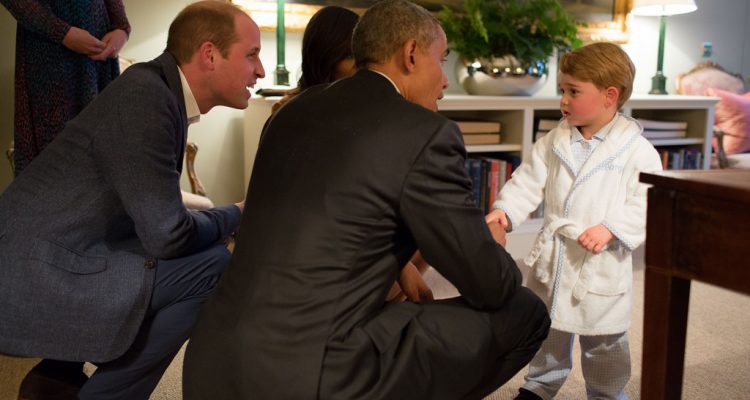It was reported by The New York Times on Dec. 1 that an Anglican priest in Glasgow, Scotland made a controversial blog post about the furtherment of same-sex marriage in the United Kingdom. What is drawing the criticism, however, is that he went on to implore his parishioners to “pray in the privacy of their hearts (or in public if they dare)” for Prince George, who is currently four years old, to be blessed “with a love, when he grows up, of a fine young gentleman.” The backlash to this post has been strong so far, as the UK legally allows gay marriage, but does not allow it to be solemnized in the Church of England. Though the intentions of Reverend Kelvin Holdsworth seem to come from a good place, I take issue with advocating for gay marriage in this way, as it presents the LGBTQ+ community in an uncomfortable light and puts unnecessary pressure on the young prince.
Foremost in my mind in addressing this issue is that again, Mr. Holdsworth does not mean any ill-will toward George in making this kind of a statement. Obviously this was meant as a sign of good faith and best wishes toward the prince, even though it was slightly inappropriate of him to do so. This was not, as former royal chaplain Reverend Gavin Ashenden stated, “an unkind and destabilizing prayer,” and it sure isn’t “the theological equivalent of the curse of the wicked fairy in one of the fairy tales.” Taking away the melodrama that the Rev. Ashenden seems to think is present here, hoping that a future royal will be gay is not the same as cursing him, and saying so perpetuates the idea that being gay is a sinful and cursed way of being, an idea the LGBTQ+ community has been trying to eradicate for decades.
Rev. Ashenden’s additional comments about George marrying “to produce a biological heir with a woman he loves” goes on further to lend credence to what I mainly don’t like about this story: the forcing of any expectation of an identity on young children. It’s a commonplace enough occurrence if you think about it; this past Thanksgiving, there were, at the very least, three to four comments made about my three-year-old cousins, describing them as “ladies’ men” and talking about “girlfriends” they had at daycare. And though these comments are, like Rev. Holdsworth’s, harmless and well-intentioned, it begs the question: why are we attributing any brand of sexual or romantic identity on young children or even babies? Why are we talking about who Prince George or even my cousin Danny’s going to be attracted to in the future when they both have no concept of anything yet? They’re still learning how to talk and walk and play and read, so why do we put these heavy expectations on them to be a certain way? It honestly boggles my mind, and even though this is usually a heteronormative occurrence, Rev. Holdsworth expands it to include homosexual identities as well.
Not only does it create unnecessary pressure for Prince George, but it also doesn’t reflect well on the LGBTQ+ community. Rev. Holdsworth is trying to use the relative power and position of the young prince as a way to make a political and religious statement, which makes gay people out to be manipulative and downright toxic if they’re taking advantage of a child in this way. And though he isn’t wrong that George having a same-sex relationship would cause a dramatic shift in the UK’s view of gay marriage, he shouldn’t be advocating for it to happen solely for the cause to be furthered. Being gay is incredibly difficult, and like it or not, wishing that identity on someone is, historically, a harder way to live versus growing up and marrying a partner of the opposite gender. So even though it isn’t the “curse” that Rev. Ashenden believes it is, it is not without its social challenges, though whether things have significantly changed by the time George is of marrying age remains to be seen.
We as adults that analyze and critique the world around us should not be forcing identities on children. This is one of the reasons it can be difficult for young people to come out; if they are born with certain expectations of their future and the partner they will have in that future, breaking that mold and defying those long-held assumptions can be incredibly difficult. Children should be able to grow up and explore their identities freely, and, for better or worse, should not have the hopes of an entire marginalized community pinned upon them.


Leave a Reply